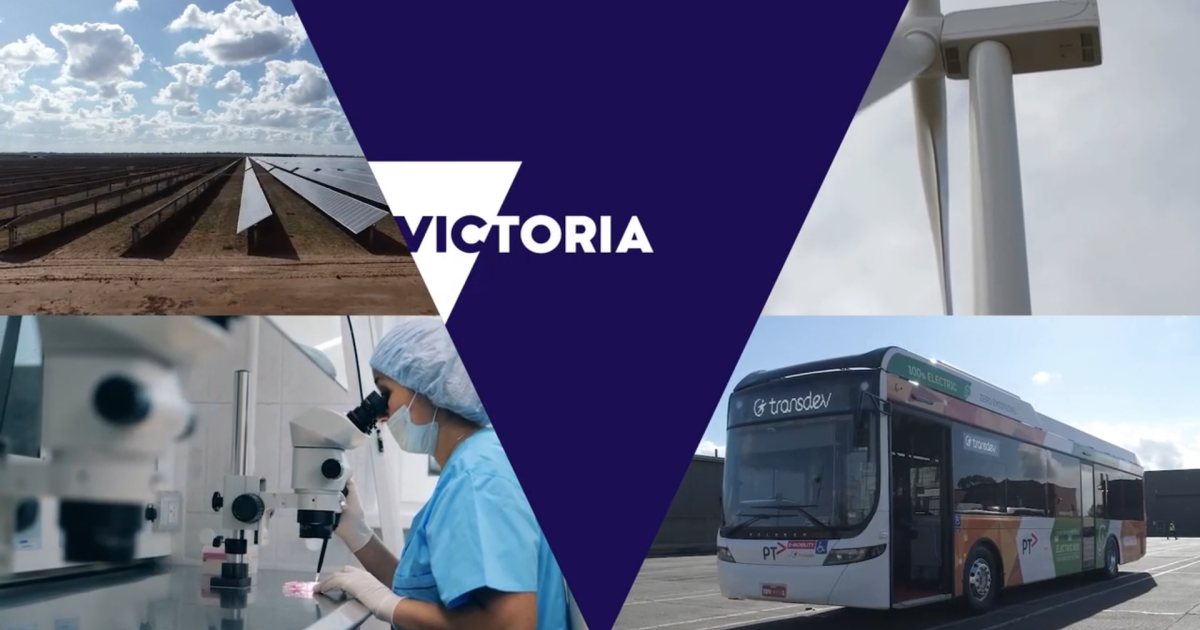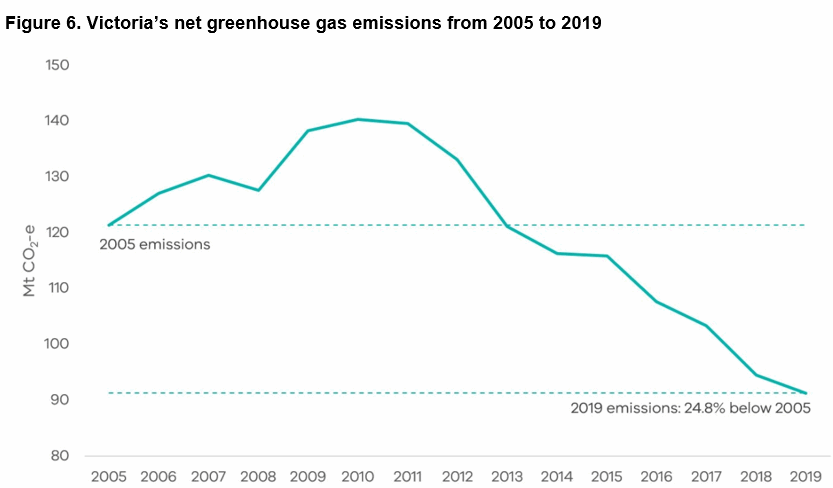
Victorians are being encouraged to have their say on the state’s interim emissions reduction target for 2035 – and how to achieve it.
The Victorian Government’s foundational target for emissions in 2020 was 15–20% below 2005 levels, which was achieved a couple of years early. While official emissions data is yet to be published for 2020, emissions in 2019 were 24.8% below 2005 levels according to the Department of Environment, Land, Water and Planning.
A main driver in the reduction were changes in how electricity is generated, including reduced use of fossil fuels and increased renewable energy generation, which saw total net emissions fall by 65% between 2005 and 2019.
It was at the end of March 2017 when coal-fired Hazelwood Power Station, one of the filthiest coal burners in the world at the time, coughed its last. In its final full year of operations, Hazelwood spewed 14.4 million tonnes of carbon dioxide equivalent (CO2e) emissions, along with various toxins such as mercury.
Looking ahead, the State Government’s Climate Change Strategy sets the following interim emissions reduction targets:
- 28–33% for 2025 below 2005 levels
- 45–50% by 2030 below 2005 levels
In February this year, the Andrews Government recruited an expert panel to advise on an interim reduction target for 2035, which must be set by the end of March next year. Now it’s the wider community’s turn on the milestone in Victoria’s journey to net-zero emissions by 2050.
Feedback can be provided via the Engage Victoria web site, either as a written submission or by answering questions through the surveys provided – or both. The Independent Expert Panel are also keen to collect the views and opinions of young people, with a special survey available for those aged up to 25 years.
“We hope to understand the level of ambition that young people want to see on climate action and add your voice to our advice to government,” states the Panel.
The feedback window closes 22 May 2022. Feedback will be reviewed between May and August this year, with reporting back to the Andrews Government to follow out to April 2023.
Victoria’s Renewable Energy Targets
The Andrews Government’s Climate Change Strategy contains a number of pledges, including one related to energy that commits the state to ensuring 50% of Victoria’s electricity will come from renewable sources by 2030. This built on the state’s previously legislated renewable energy generation targets of 25% by 2020 and 40% by 2025.
The first target was easily achieved and Victoria appears to be on track for the second. According to OpenNEM, renewables contributed 32.4% of demand and 31.6% of generation last year; with rooftop solar energy contributing 7.2% of electricity consumption. The uptake of rooftop solar power in the state has been supported by the national subsidy combined with Victoria’s solar panel rebate; the latter currently offering up to $1,400 or 50% off the cost of a system; whichever is lowest.


 RSS - Posts
RSS - Posts



Great update on Victorian state initiative. Not sure I understand how the state vs federal goals work. Should I federally ignore them in regards to environment/clean energy?